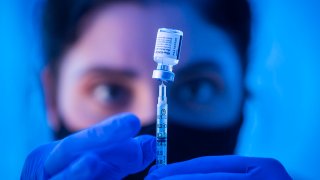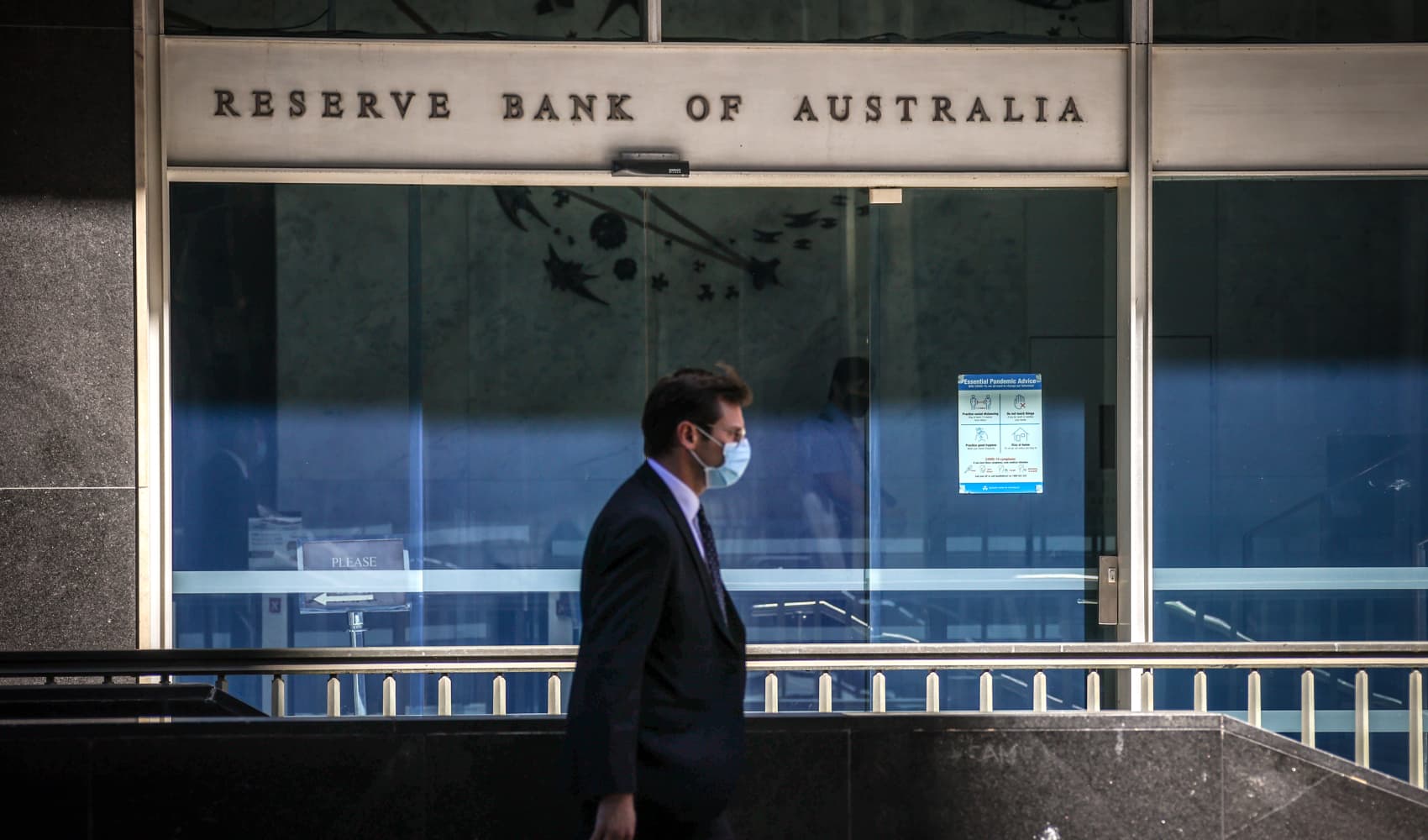
- The FDA authorized Moderna's and Pfizer's Covid vaccine booster shots for all U.S. adults Friday, after reviewing new data supporting the extra doses.
- The CDC still has to authorize the distribution before people can start receiving the shots, which could start this weekend.
- The CDC's independent panel of vaccine experts is scheduled to meet Friday to review the new data.
- CDC Director Rochelle Walensky on Wednesday said the public health agency would "act swiftly" after the FDA has reviewed the data and provided its authorization.
The Food and Drug Administration authorized Moderna's and Pfizer's Covid booster shots for all U.S. adults Friday — two months later than the Biden administration had wanted to begin giving the extra doses — as growing data shows the efficacy of vaccines wanes over time.
The emergency use authorization comes after the companies in the last week submitted new data supporting the third doses. Scientists advising the FDA had rejected the administration's original plans to start distributing boosters to all adults the week of Sept. 20, citing a lack of supporting data. Moderna resubmitted its application just two days ago.
FDA Acting Commissioner Janet Woodcock cleared the doses without the usual public meeting to review the new data. The companies announced the decision Friday morning.
"This emergency use authorization comes at a critical time as we enter the winter months and face increasing COVID-19 case counts and hospitalizations across the country," Moderna CEO Stephane Bancel said in a statement.
Woodcock said the agency has acted swiftly to protect the public as the pandemic evolves. She said booster shots are the best way to keep people from ending up hospitalized or dying from Covid.
Money Report
The Centers for Disease Control and Prevention still has to authorize distribution of the booster doses before people can start receiving the shots, which could start this weekend. The CDC's independent panel of vaccine experts is scheduled to meet Friday to review the new data and is expected to quickly approve the third doses. CDC Director Rochelle Walensky on Wednesday said the public health agency would "act swiftly" after the FDA OKs the shots.
Feeling out of the loop? We'll catch you up on the Chicago news you need to know. Sign up for the weekly Chicago Catch-Up newsletter.
The FDA's advisory panel originally met in September to consider recommending Pfizer's boosters for the general public, but decided against doing so amid concerns from some that there wasn't enough data. They recommended a scaled-back distribution plan instead for the elderly and adults who face a high risk from Covid. The CDC approved Pfizer's booster shots for those groups in September and Moderna and J&J recipients last month.
"The FDA has determined that the currently available data support expanding the eligibility of a single booster dose of the Moderna and Pfizer-BioNTech COVID-19 vaccines to individuals 18 years of age and older," said Dr. Peter Marks, who is the agency's top vaccine regulator as head of the FDA's Center for Biologics Evaluation and Research. "Streamlining the eligibility criteria and making booster doses available to all individuals 18 years of age and older will also help to eliminate confusion about who may receive a booster dose and ensure booster doses are available to all who may need one."
Broadly distributing booster shots is controversial among public health authorities. The World Health Organization has criticized wealthy nations for rolling out third shots when people in poorer countries have very limited access to Covid vaccines.
The WHO has pushed for a greater focus on assisting immunization efforts in the developing world, warning that new variants of the virus could emerge and undermine protection in countries that have achieved already-high levels of vaccination.
Booster shots have also stirred some controversy in the U.S., as they are rolling out at a time when the country is struggling to persuade millions of people to even get their first dose. More than 60 million Americans remain unvaccinated.
However, many Americans desire an extra layer of protection as data increasingly shows vaccine effectiveness against infection wears off over time. A study published in the journal Science this month found that the effectiveness of Pfizer's vaccine, made with German biotech company BioNTech, declined from 86% to 43% from February to October this year. The efficacy of Moderna's vaccine against symptomatic infection fell from 89% to 58% and Johnson & Johnson's dropped from 86% to 13%.
However, the vaccines still provide a high level of protection against hospitalization and death, scientists say.
Public health experts expect an increase in Covid infections as the weather turns and Americans gather indoors for the holidays and to escape the winter cold. Booster doses could help reduce transmission, which is already high, by helping to prevent breakthrough infections among people already vaccinated, scientists say.
The CDC has already authorized booster doses for people 18 and over who received the single-dose J&J shot.
Moderna resubmitted its application for the FDA to approve a third dose of its shot for adults 18 and over on Wednesday.
The U.S. has administered more than 169 million doses of Moderna's vaccine, more than 258 million doses of Pfizer's, and more than 16 million doses of Johnson & Johnson's.
Nearly 80% of Americans ages 12 and older have received at least one dose of the three vaccines, according to CDC data. More than 31.4 million people have already received their booster shots in the U.S., the data shows. President Joe Biden received his booster dose in September.
White House chief medical advisor Dr. Anthony Fauci on Wednesday urged Americans to get vaccinated and sign up for their booster if they are eligible.
"It is not too late. Get vaccinated now. And importantly, if you are already vaccinated six months or more ago and eligible for a boost, get a boost," Fauci said.
"The Israelis have shown that when you boost, you multifold diminish the likelihood of getting infected, getting sick, or dying," he said, referring to an Israeli study published in the Lancet in October.






